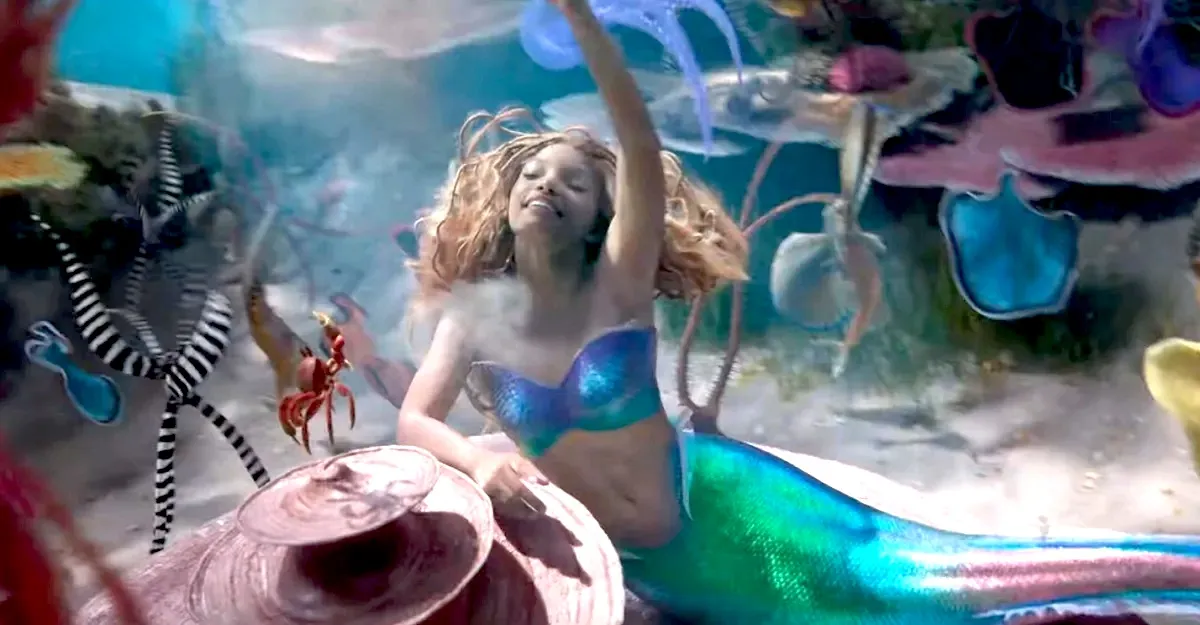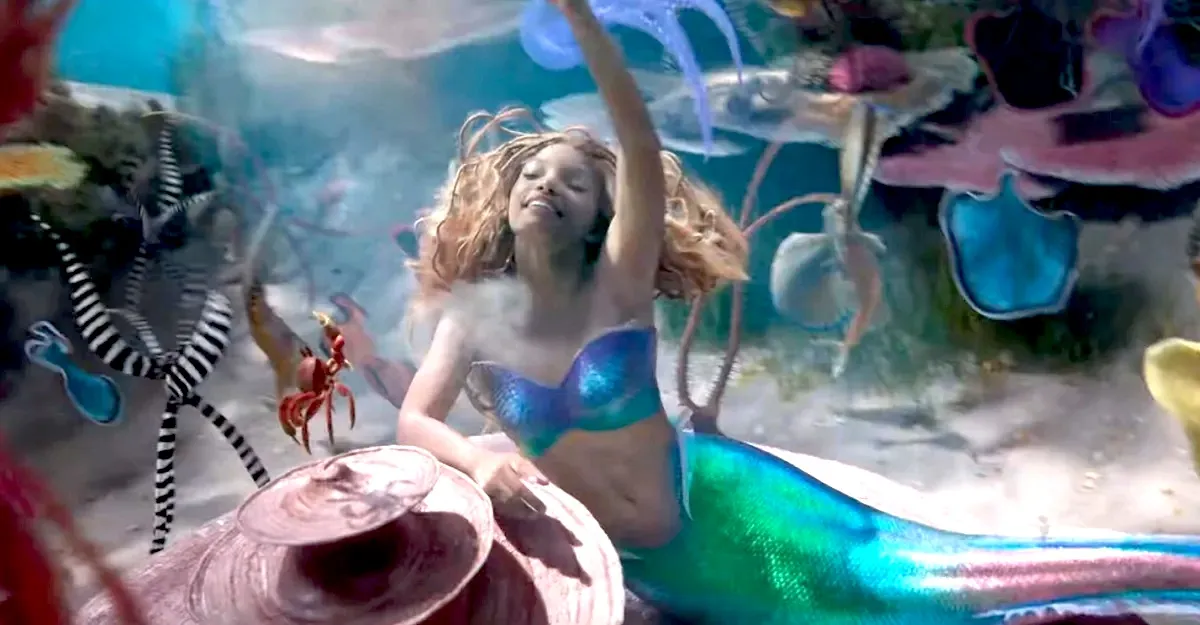
This Variety article about The Little Mermaid’s opening weekend box office in China annoyed the crap out of me by indulging a “debate” that’s become all too common. Variety says, “Discussion of ‘The Little Mermaid,’ in which actor and singer Halle Bailey portrays the title role, again raised the question about how willing Chinese audiences are to watch films with prominent Black characters.”
There are more interesting narratives than the racism discussion when looking at box office numbers (thank you, Box Office Mojo!), especially when comparing the Disney “live-action” films (in quotes because they just use different types of animation to varying degrees) to each other. To immediately use the performance of one film with a Black protagonist to prop up studios’ harmful, misguided beliefs about how inclusion may impact a film’s international box office, even if that doesn’t really make sense, is, itself … kinda racist!
Like TLM, Aladdin also opened in the U.S. on Memorial Day Weekend 2019. Its box office for the entire holiday weekend was $116,805,962. The Little Mermaid opened on Memorial Day Weekend 2023 (post-pandemic, with no Will Smith-level name attached) to $118,818,903. TLM had a lot stacked against it and still outperformed Aladdin’s opening in the U.S.
Since Hollywood prioritizes China as a market, and that’s what Variety wanted to talk about, here are the Chinese opening weekend figures for these films (in descending order):
- Cinderella (2015) – $71.5M
- The Lion King (2019) – $54.2M
- The Jungle Book (2016) – $49M
- Beauty & the Beast (2017) – $44.5M
- Aladdin (2019) – $18.5M
- The Little Mermaid (2023) – $2.5M
So, TLM did make the least money of all the live-action Disney films when it opened in China. Here’s some additional context:
- Aladdin, which has an Arab protagonist and also cast a role originally played by a white actor with a big-name Black actor, made nine times more. It’s likely that Will Smith, who is a global superstar, has more name recognition than Halle Bailey does in China.
- Aladdin and its predecessors came out in or before 2019. Before the COVID-19 pandemic changed people’s moviegoing habits.
- Yes, The Lion King is about animals, but it takes place in Africa, has Black actors voicing most of the roles, and has the power of Beyoncé. The film, and everything surrounding it, has a deeply African vibe.
- The Jungle Book also has a brown main character. So, of all the live-action Disney remakes so far, only two have starred white people.
Could you argue that, since Cinderella made the most money in China, they “prefer” movies with white leads? You could. But that dismisses the fact that the films that didn’t have white leads, which was most of them, made a substantial amount of money in China. So, this fear that we keep rehashing about whether China will accept films with Black leads (or other POC) is unfounded and stale.
Since capitalism prioritizes profit, it makes more sense to add up all the money. Here are the worldwide, original release opening weekend box office numbers for these films (followed by the number of countries in which they opened):
- The Lion King (2019) – $465,135,528 – 52
- Beauty & the Beast (2017) – $417,166,791 – 52
- Aladdin (2019) – $287,825,365 – 52
- The Jungle Book (2016) – $233,253,664 – 53
- Cinderella (2015) – $127,334,983 – 62
- The Little Mermaid (2023) – $118,818,903 – 46
TLM opened in fewer countries than the others. So, why isn’t the story that The Little Mermaid technically made more in its opening weekend, percentage-wise, than Cinderella (the story of the whitest white girl) did?
The Little Mermaid is currently sitting at $338,770,045 worldwide, having just opened a week ago. Cinderella made $542,351,353 over its entire original, global theatrical release. Meanwhile, Aladdin and The Lion King (one story with non-white leads, the other a deeply African story) each broke $1 billion in their original releases.
We need to stop trotting out the “fear of China’s racism” narrative every time we release a film with a Black protagonist globally. Let’s stick with discussing facts that actually exist, rather than upholding studios’ misguided fears.
(featured image: Walt Disney Studios Motion Pictures)
Have a tip we should know? [email protected]
